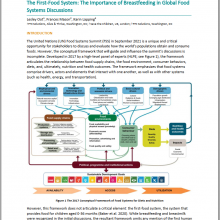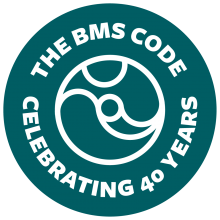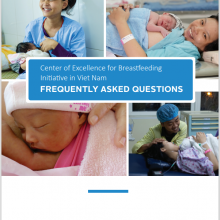Brief
Jul 15 2021

The First-Food System: The Importance of Breastfeeding in Global Food Systems Discussions
Announcement
Jun 01 2021

Special BMS Code resources collection
Alive & Thrive has launched a special collection of resources on the BMS Code, featuring resources from various organizations around the world.
Journal article
Apr 26 2021

Misalignment of global COVID-19 breastfeeding and newborn care guidelines with World Health Organization recommendations (Hoang, D.V., 2020. BMJ Nutrition, Prevention & Health)
Guidance documents from 33 countries on newborn care for infants whose mothers are diagnosed with confirmed or suspected COVID-19 were assessed for alignment with WHO recommendations, revealing considerable inconsistencies.
Journal article
Apr 22 2021

Old Tricks, New Opportunities: How Companies Violate the International Code of Marketing of Breast-Milk Substitutes and Undermine Maternal and Child Health during the COVID-19 Pandemic (Ching, C., 2021. Int'l Journal of Environmental Research and Pub Hth)
An analysis reveals that breastmilk substitutes companies are using health claims, misinformation about breastfeeding, digital marketing, and promotional tactics such as donations and services to capitalize on families’ COVID-19 fears to undermine breastfeeding and sell products.
Guide/Manual
Apr 20 2021

Centers of of Excellence: Frequently Asked Questions
In Viet Nam, Alive & Thrive has worked with a variety of stakeholders to develop “Centers of Excellence for Breastfeeding” — a designation conferred upon hospitals to signify that they are breastfeeding-friendly.
Journal article
Mar 08 2021

The yearly financing need of providing paid maternity leave in the informal sector in Indonesia (Siregar, A., 2021. International Breastfeeding Journal)
Study results reveal that yearly financing needs to provide maternity cash transfers (MCT) for women of reproductive age (WRA) in the informal sector would not exceed .5% of Indonesian GDP and could provide significant public health savings and partially alleviate the economic cost of not breastf

